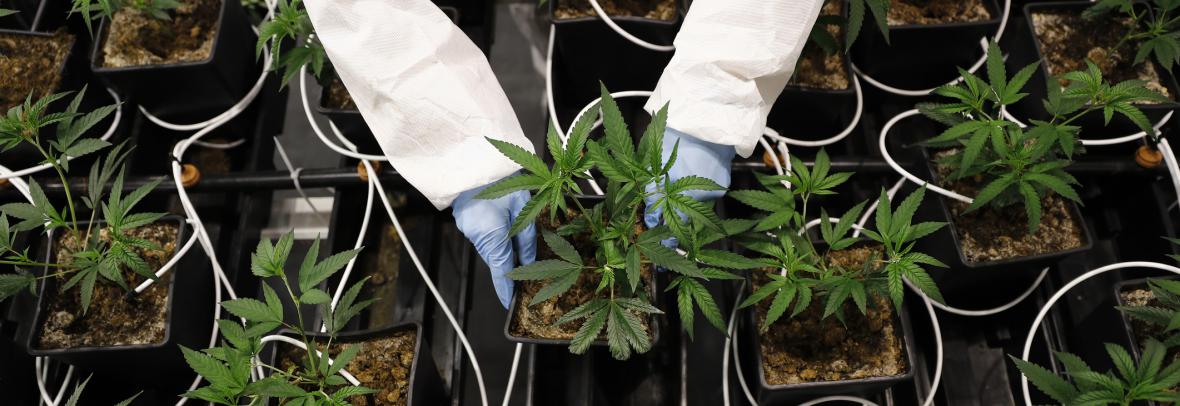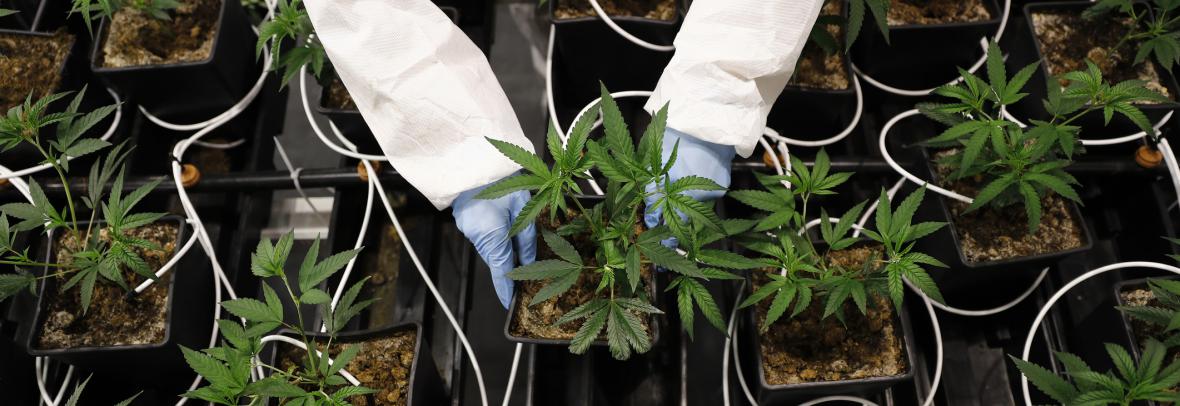
States with marijuana legalization laws have seen increased demand for warehouse space, and about half with pre-2016 legalization laws are seeing addendums added to leases that restrict on-site growing. One recent change: More properties are being bought rather than leased.
WASHINGTON – As more parts of the U.S. legalize marijuana – and as an increasing number of states grow, harvest, store, sell and allow consumption – the real estate industry has felt the effect.
According to a new 2021 report from the National Association of Realtors® (NAR), there has been a noticeable rise in demand for warehouses, land and store fronts used for marijuana. The survey, Marijuana and Real Estate: A Budding Issue, examines the legality of marijuana in terms of medical only, plus, legalized medical and recreational during and after 2016.
More than one-third of respondents in states where marijuana has been legalized the longest said inventory was tight for multiple reasons, and they cited the marijuana industry as one of the factors. This is also true for those in areas where marijuana was more recently legalized, and 23% of Realtors® also partially blamed the marijuana industry for the limited inventory.
“The dynamics of marijuana have been far-reaching over the past year, which is evident when you see how it has impacted real estate,” says Jessica Lautz, vice president of demographics and behavioral insights for NAR. “As the marijuana laws continue to evolve, Realtors have witnessed increased demand for commercial properties to store, grow and sell marijuana.”
Additionally, 29% of commercial members in states that legalized recreational marijuana during the past four years reported growth in property purchasing over leasing in the last year. Nearly half of those in states that had legal medical and recreational marijuana before 2016 have experienced addendums added to residential leases restricting growing on properties; in other states, it’s one quarter or less.
In states where only medical marijuana is legal, two out of three (69%) commercial members said that no additional addendums were inserted into leases about growing marijuana plants. In states where both medical and recreational marijuana is legal, it’s 45% to 55%.
Perhaps to avoid landlord addendums, some business owners buy rather than lease. Business owners who purchase a property don’t have to adhere to marijuana rules or regulations that they may consider burdensome. This property-purchase trend was seen the most in states where marijuana is newly legal.
Respondents in states where recreational marijuana is legal more often said that homeowner associations regularly had policies or restrictions in place pertaining to smoking and growing the product in common areas or exposed areas. Nearly half of the homeowner associations opposed smoking in common areas, while about two-fifths prohibited growing in mutual open areas, such as a private yard without fences.
Those surveyed within states with only prescription marijuana said there often were not any homeowner association rules and regulations related to marijuana.
“We saw that a number of property owners at some point in the past had difficulty leasing their property after a previous tenant consumed marijuana there over an extended period,” says Lautz. “To avoid repeats of those issues, landlords have implemented various guidelines that place numerous restrictions on the use of marijuana.”
Lautz says property owners who have imposed constraints tend to reside or own property in states where marijuana has been legal the longest.
“As the marijuana industry evolves, both commercial and residential landlords are balancing efforts to profit from the progressions, while also ensuring that their property remains desirable and at a high value,” Lautz says.
© 2021 Florida Realtors®
Go to Source
Author: kerrys



